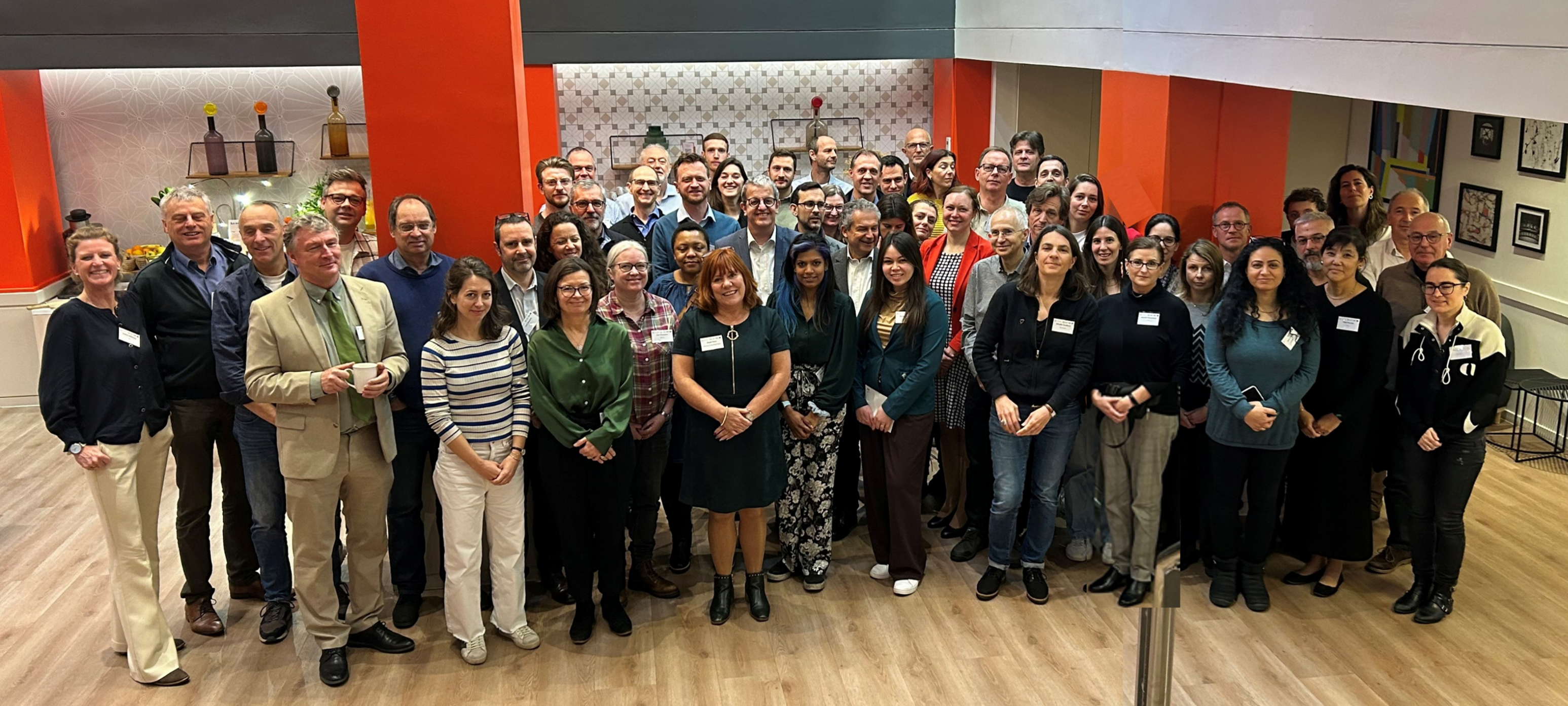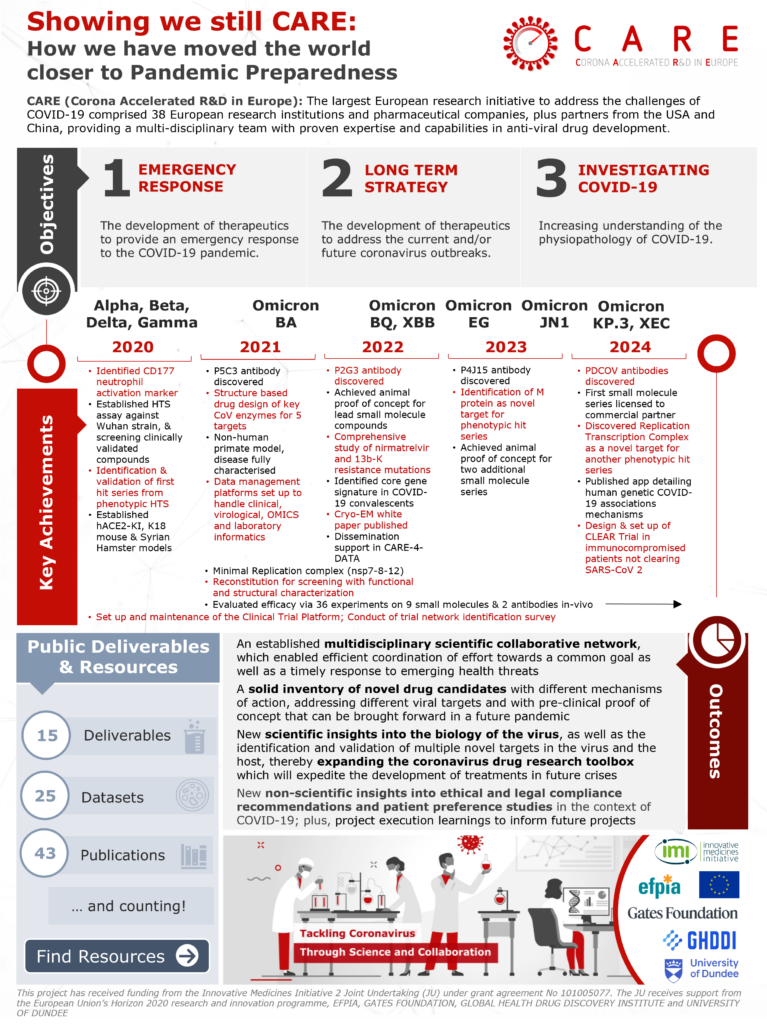Published in IJBM: SARS-CoV-2 Mpro oligomerization as a potential target for therapy
The CARE partner Jagiellonian University (JU) explored the mechanisms of dimerization (formation of dimers) of SARS-CoV-2 main protease (Mpro) to evaluate the impact of blocking this dimerization on the virus replication. Indeed the enzyme Mpro is critical in the virus’s replication cycle, facilitating the maturation of polyproteins into functional units. Currently available COVID-19 treatments target the Mpro.
Knowing that dimerization is indispensable for Mpro activity, JU decided to evaluate the impact of mutating two amino acids located in two different locations of the Mpro that are involved in dimerization. For this purpose, they used a range of techniques to evaluate the state (monomer or dimer) of different variants of Mpro, including biochemistry studies, biophysical analyses, together with structural, molecular dynamics, and quantum mechanical analysis.
Among the two amino acids studied (Arginine in position 4 – Arg4 – and Arginine in position 298 – Arg298), the results show that Arg4 is not the main driver for dimerization and high enzyme activity, while mutation of Arg298 completely abolishes the dimer formation and results in significant activity loss. Mutation of both arginines results in detrimental effects.
This research deepens our knowledge of the potential of inhibition of Mpro’s enzymatic activity by preventing dimerization, offering complementary approaches to limit SARS-CoV-2 virulence. This is a new perspective for the development of targeted therapies, to hit the most critical parts of the enzyme machinery. Moreover, given that the Mpro is highly conserved between different types of coronaviruses, these findings may help develop an antiviral drug effective against more than SARS-CoV-2 including potential new coronaviruses.
To learn more, click here: SARS-CoV-2 Mpro oligomerization as a potential target for therapy



